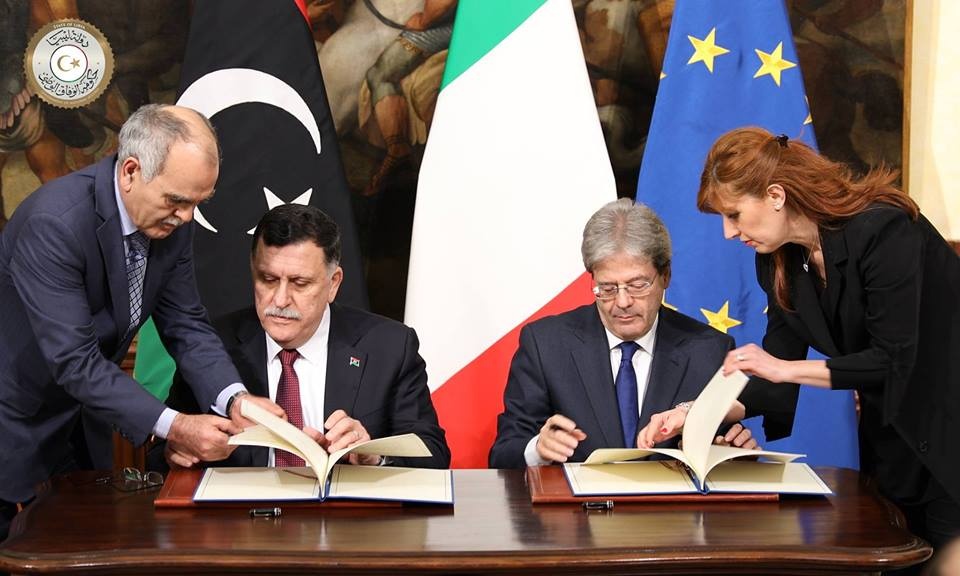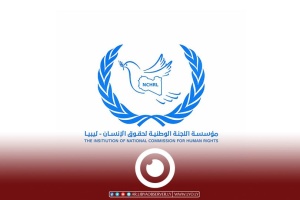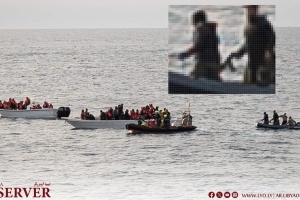The Head of the UN-proposed government’s Presidential Council (PC) Fayez Al-Sirraj signed a Memorandum of Understanding (MoU) with the Italian Premier, Paolo Gentiloni, in Rome last Thursday.
The memo has become effective since the day of signing (February 02) and will last for three years and renewal for three more automatically.
The MoU is meant to step up cooperation between Libya and Italy in the fight of migrant trafficking from Libyan shores, smuggling and securing southern borders.
Italy will help Libyan and others’ efforts to control the country’s southern borders.
“Rome will give Libya a border-control system that was agreed on in 2012.” The MoU reportedly says.
Italy will cooperate with Libya and provide support as well as funding for development projects in the Libyan districts that have been harmed by illegal immigration, the memo reads.
It also includes that Italy will be responsible for providing technical support for Libyan Illegal Immigration Fight Center in its operations against human trafficking and for securing borders.
Cooperation between the two countries will solidify even stronger in three coming months after the MoU was signed. A wider vision for African-European coordination in curbing illegal immigration shall take effect and encourage international organizations to pursue their efforts that aim at returning immigrants to their countries of origin.
The deal cracked the Libyan opinion in two halves, the pro-political-agreement figures hailed the MoU, while the anti-political-agreement parties lashed out at it.
“We’re not going to recognize this memo and won’t even allow it to be executed because Italy had to sign such a deal with the legitimate authority in Libya.” Dignity Operation spokesman, Ahmed Al-Mismari said.
Criminal law and constitutional consultant, Azza Al-Maqhoor, said the MoU does little good for Libya as all the commitment in the memo are placed on Libya’s territories.
She added that illegal immigration is a three-side problem that includes source countries, crossing countries and target countries, so limiting the issue between the source and crossing countries shake the equilibrium a bit strongly and leaves the burdens for the crossing country alone.
“Libya should be protected against waves of migrants from the sources countries, and not protecting the target countries from migrants and make Libya bear the burdens of the world.” Al-Maqhoor indicated.
According to analysts, the mysteries underneath the lines written in the memo between Libya and Italy could eventually lead to turning Libya into a country where millions of African migrants are settled, hence transferring the dilemma from under the grip of the EU, which can easily tackle it, to the grip of Libya, which is unable to even resolve its own issues.








